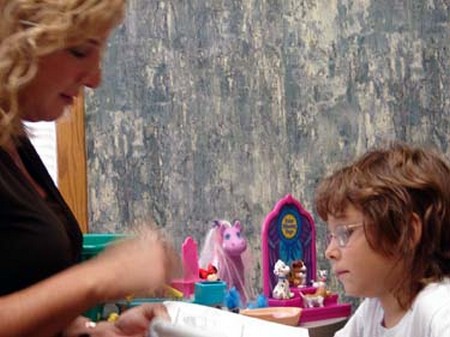No child thrives on criticism, although every child benefits from helpful correction. While both these measures share the purpose of changing a child’s behavior, criticism is nearly always negative. It tells the child what is wrong, without offering suggestions for positive change. A child who is constantly criticized will soon lack self-confidence and have little belief in his own abilities.
Your child cannot improve his behavior at home, or his performance in class, unless he is aware of his weaknesses and of ways to change them. This is part of the learning process. Don’t be afraid to point out to your child that he has put his sweater on backwards. If you don’t let him know his mistake, he’s likely to repeat it. At the same time, help your child learn how to do it properly, perhaps by explaining that the buttons go in front. These two aspects should always be combined.
Parents can become trapped in a cycle of criticism when their child regularly misbehaves—a pattern that is hard to break. The more a child refuses to do as he’s told, the more you reprimand him. This increases tension at home, which unsettles your child even further, resulting in more criticism. If you find yourself in the situation of constantly criticizing your child, try to determine why he has the need to misbehave. Perhaps he has had a fight with his best friend, or is worried about school. Perhaps your expectations of him are too high. Dealing with the factors that cause your child stress is a more effective way to improve his behavior than regularly criticizing him. Never blame your child for your own difficulties.
Of course every child reaches the point where he needs a reprimand for breaking the family rules. Always ensure your child understands the difference between rejection of his behavior and rejection of himself. You child has to learn that you can be angry with him for something he has done and yet, at the same time, still love him. If your child knows this, then your occasional criticism won’t do him any harm. If he doesn’t know this, then he will fear even a slight negative remark.
